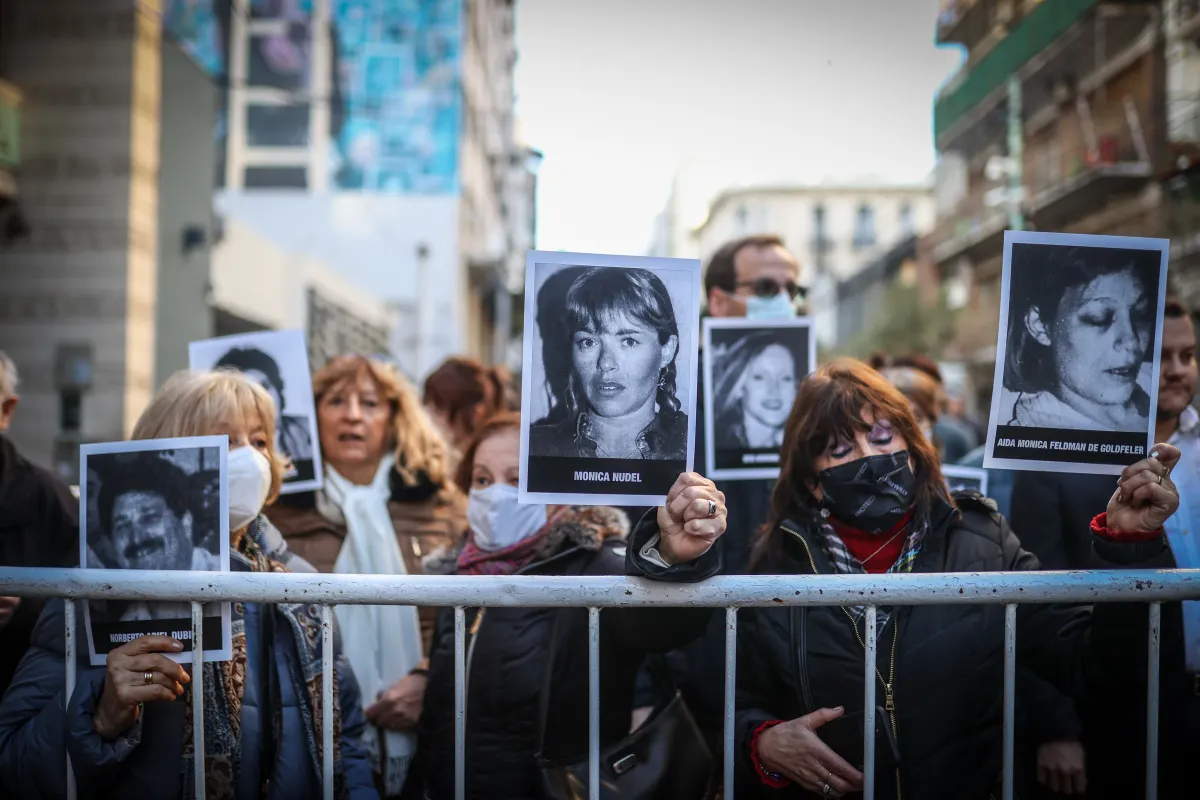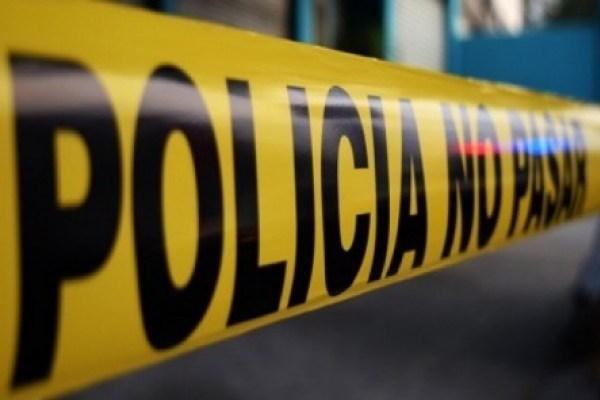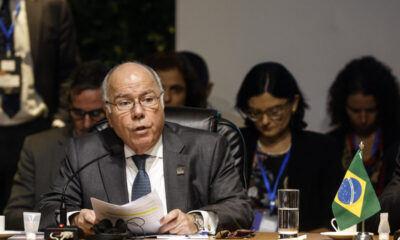International
Argentina will face reforms to promote an ‘trial in absence’ in the ‘AMIA case’

The Government of Argentina “works at full speed” to face reforms to promote a ‘trial in absence’ for the attack committed in 1994 against the Argentine Israeli Mutual Association (AMIA).
The terrorist act left 85 dead and 300 injured and remains unpunished, since it is not possible to judge it with the current legislation.
After the ruling issued by Chamber II of the Federal Chamber of Cassation in ‘Case AMIA II’, which declared as a “crime against humanity” the attack on the headquarters of the AMIA and seals the then Iranian Government and the Lebanese militia Hizbulá of these events, the Argentine Minister of Security, Patricia Bullrich, made that announcement at a press conference.
Although local media reported that the Executive raised the anti-terrorist alert and strengthened security around embassies and airports, Bullrich did not talk about it and limited himself to loading the inks on former Peronist president Cristina Fernández (2007-2015).
According to Bullrich, Fernández “wanted to hide (Iran’s terrorist character) behind a nefarious memorandum that led us to negotiate with the terrorists instead of moving forward with the investigation.”
With this he referred to the Memorandum of Understanding with the Islamic Republic of Iran, signed in 2013, with the aim of bringing positions closer to move forward with the investigation. Despite its approval by the Argentine Congress, the measure was prosecuted and, in May 2014, the law that approved the pact was declared unconstitutional, which never entered into force, because the Iranian Parliament never ratified it.
“The truth is that yesterday was a great day for Argentina,” he said.
The ‘trial in absence’, which is not possible according to Argentine legislation, although there are several bills that seek to enable it, was one of the reforms suggested by the judges of the Criminal Cassation Chamber who issued the ruling.
In addition to being the largest terrorist attack on Argentine soil, the attack on the AMIA was also the largest on Jewish targets outside Israel since World War II.
The Jewish community in Argentina, the largest in Latin America and the fifth in the world, celebrated the ruling, although it demanded an end to impunity for its leaders.
In a statement, the AMIA stated that it receives “in a favorable way” the claim that the attack “responded to a political decision” by Iran, executed by Hizbulah.
According to the entity, on several occasions the AMIA “has expressed that the judicial file accredits multiple evidence, and contains numerous evidences that allowed to establish, from the beginning of the investigation, the role of Iran and its active participation in the decision, organization and financing of the terrorist attack.”
However, he demanded that the intellectual and material responsible “be judged and serve their sentences for the atrocious crime against humanity they committed.”
“Impunity in the AMIA cause is a shameful mark for Argentine history and a debt of democracy,” the text added.
Therefore, and with three months to go before the 30th anniversary of the attack, the entity said that “it will not be satisfied with the arrival of widely known conclusions,” since it considers it “unacceptable” that local legislation is “the same” as at the beginning of the investigation, and asked for the development of “a legal framework that allows improving the conditions of investigation, intelligence, prevention and punishment.”
Also the president of the Delegation of Argentine Israeli Associations (DAIA), Jorge Knoblovits, opined that the ruling issued on Thursday was a cause for celebration for the Jewish community: “We must applaud these judges, who have had courage and probity.”
The DAIA recalled that “this is the line of investigation of the complaint of the prosecutor (Alberto) Nisman,” who led the investigations for 10 years until he was found dead at home on Sunday, January 18, 2015 in strange circumstances; the case, which was characterized as homicide in 2018, remains unresolved.
International
Football Fan Killed in Clashes After Colombian League Match

Fans of Cúcuta Deportivo and their traditional rivals Atlético Bucaramanga clashed outside the stadium following their local league match on Tuesday, leaving one supporter dead and several others injured.
The deceased fan was stabbed, according to a senior police official in Cúcuta who confirmed the cause of death in a video statement. Local media reported that the victim was a supporter of the visiting team, Atlético Bucaramanga.
The match ended in a 2-2 draw. Authorities had banned the entry of Atlético Bucaramanga’s organized supporters into the stadium in an effort to prevent disturbances.
Despite the restrictions, violence broke out in the surrounding areas after the game. Among the injured were three police officers, an institutional source told AFP.
The incident adds to a series of recent violent episodes linked to Colombian football. The most recent occurred in December, when supporters of Atlético Nacional and Independiente Medellín clashed in the stands and on the pitch, leaving 59 people injured.
International
Missing Spanish Sailor Rescued After 11 Days Adrift in Mediterranean

The man had departed from the port of Gandía, on Spain’s eastern coast, with the intention of reaching the southern Spanish town of Guardamar del Segura, a journey of about 150 kilometers, a spokesperson for Spain’s maritime rescue service told AFP.
Search boats and aircraft were deployed on January 17, but the operation was called off on January 22 after efforts proved unsuccessful. Alerts were then issued to vessels navigating the area in case they spotted any signs of the missing sailor.
As hopes were fading, a surveillance aircraft from the European Union’s border agency Frontex spotted the sailboat on Tuesday, along with a person signaling for help, approximately 53 nautical miles northeast of Bejaia, Algeria.
A nearby vessel, the Singapore-flagged bulk carrier Thor Confidence, carried out the rescue and is expected to bring the man to an end to his ordeal when it arrives on Thursday in the southern Spanish port city of Algeciras.
Maritime rescue services shared images on social media showing a small white sailboat drifting at sea and secured alongside the much larger ship.
It remains unclear how the sailboat ended up hundreds of kilometers off its intended route or how the man managed to survive for so long alone in open waters.
International
Rubio Says U.S. Could Participate in Follow-Up Russia-Ukraine Talks

The United States could join a new round of talks this week aimed at ending Russia’s invasion of Ukraine, Secretary of State Marco Rubio said on Tuesday.
Teams from Kyiv and Moscow met last Friday and Saturday in Abu Dhabi in their first publicly acknowledged direct negotiations to discuss the peace initiative promoted by former U.S. President Donald Trump.
“They are going to hold follow-up talks again this week,” Rubio told the Senate Foreign Relations Committee. “There could be U.S. participation.”
However, Rubio suggested that Washington’s role may be more limited than during last week’s discussions, which included Steve Witkoff, the president’s special envoy, and Jared Kushner, Trump’s son-in-law.
The secretary of state indicated that progress may have already been made on security guarantees for Ukraine, one of Kyiv’s key demands in any agreement with Moscow after nearly four years of Russian invasion.
“There is one remaining issue that everyone is familiar with, and that is the territorial claim over Donetsk,” Rubio said, referring to the eastern Ukrainian region that Russia wants Ukraine to cede.
“I know that active efforts are underway to see whether the positions of both sides on this issue can be reconciled. It remains a bridge we have not yet crossed,” he added during the hearing.
Rubio acknowledged that the territorial question would be particularly difficult for Ukraine to resolve.
-

 Central America3 days ago
Central America3 days agoGuatemala seizes over a ton of cocaine hidden in flour at Pacific port
-

 International5 days ago
International5 days agoTrump-Era Defense Plan Prioritizes Border Security and Scales Back Global Commitments
-

 International5 days ago
International5 days agoBogotá and Quito Seek Dialogue After Tariffs and Power Cut Escalate Tensions
-

 International4 days ago
International4 days agoDelcy Rodríguez seeks political agreements after Maduro’s ouster
-

 International3 days ago
International3 days agoHistoric snowstorm paralyzes Toronto after 60 centimeters of snow
-

 International3 days ago
International3 days agoSpain’s irregular migrant population rises to 840,000, study finds
-

 International4 days ago
International4 days agoFederal immigration agents kill man in Minneapolis, sparking protests and outrage
-

 Central America2 days ago
Central America2 days agoGuatemala Police Arrest Prison Guard Caught in the Act of Extortion
-

 Central America2 days ago
Central America2 days agoHonduras swears in conservative president Asfura after disputed election
-

 Central America2 days ago
Central America2 days agoBukele leads public trust rankings as UCA survey highlights gains in security
-

 International2 days ago
International2 days agoWinter Storm Fern Leaves 30 Dead and Over One Million Without Power Across the U.S.
-

 Sin categoría2 days ago
Sin categoría2 days agoEight Killed in Series of Armed Attacks in Ecuador’s Manabí Province
-

 International3 days ago
International3 days agoRights group says nearly 6,000 killed in Iran protest crackdown
-

 International2 days ago
International2 days agoDoomsday clock moves to 85 seconds before midnight amid rising global risks
-

 International11 hours ago
International11 hours agoFootball Fan Killed in Clashes After Colombian League Match
-

 International3 days ago
International3 days agoVenezuela frees at least 80 political prisoners, NGO says
-

 International2 days ago
International2 days agoSpain approves plan to regularize up to 500,000 migrants in Historic Shift
-

 Sin categoría2 days ago
Sin categoría2 days agoEl Salvador Launches Fourth Year of Ocean Mission to Protect Marine Ecosystems
-

 International11 hours ago
International11 hours agoRubio Says U.S. Could Participate in Follow-Up Russia-Ukraine Talks
-

 International3 days ago
International3 days agoEU launches new probe into X over AI-generated fake nude images
-

 International11 hours ago
International11 hours agoMissing Spanish Sailor Rescued After 11 Days Adrift in Mediterranean
-

 Central America11 hours ago
Central America11 hours agoGuatemala President Says Starlink Terminal Found Inside Prison
-

 International3 days ago
International3 days agoSevere winter storm grips U.S., leaves multiple dead as extreme cold persists
-

 International3 days ago
International3 days agoFrance debates ban on social media for children under 15






















































